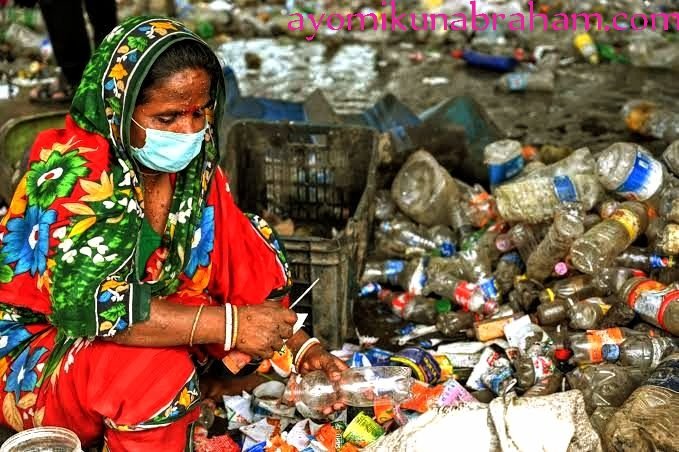How to set up a Waste Management Company in Nigeria
How Waste Management is done in Nigeria
How To Set Up A Waste Management Company In Nigeria.
In Nigeria, waste management has remained an ongoing and largely unresolved problem for decades. We understand the negative impact of waste on the environment and health, starting a waste management business in Nigeria is not only a worthy cause to contribute to society but also a great business idea. Waste management is the systematic management of garbage, waste, sewage, and other unwanted materials generated by the community.
The waste management process includes the collection, transportation, treatment and recycling of waste.
According to the World Bank, Nigeria generates about 32 million tons of waste each year and only 20-30% of this waste is managed properly. This number is disturbing and highlights the need for a sustainable approach to waste management in Nigeria. The lack of commitment from government agencies in charge of waste management has created gaps that the private sector can fill.

Starting a waste management business in Nigeria offers a significant opportunity to exploit an unmet market gap, providing employment and income generation opportunities. The government has not done enough to effectively manage waste disposal, making the private sector a viable option.
The government’s emphasis on waste management is aimed at maintaining public health and safety, but this has not yet resulted in an adequate and sustainable waste treatment system. There is no doubt that the waste management business is not only a business idea but also an important social service to ensure a more sustainable environment.
Recycling has become an essential aspect of waste treatment globally, and a recycling plant can be an integral part of a company’s broader waste management strategy.
By trying to minimize environmental degradation and pollution, a waste management company in Nigeria can leverage the benefits of a recycling plant to generate profits.
Waste management is an integral part of environmental sustainability and public health. The need for efficient and sustainable waste management in Nigeria cannot be overstated. Nigeria needs a reputable and efficient waste management company to provide quality services and create job opportunities. As an entrepreneur who understands the potential benefits and benefits of meeting the needs of society, starting a waste management business could be the opportunity you are looking for.
Type of wastes found in Nigeria Environment.
Before we proceed with how you can set up a waste management company in Nigeria, let’s talk about the common type of waste you will encounter mostly in the Nigerian environment as this will give insight on the type of recycling process you will adopt.
- Hazardous waste: This type of waste can be harmful to the environment and human health if not handled properly. Examples include hazardous chemicals, batteries, electronic waste, medical waste, and radioactive waste. Hazardous waste must be handled in special containers and facilities to avoid contamination.
- Biodegradable waste: It is a type of waste that can be easily broken down by natural processes such as microorganisms, fungi and bacteria. Examples include food waste, animal manure, and yard waste. Biodegradable waste can often be composted and turned into nutrient-rich soil.
- Non-biodegradable waste: It is a type of waste that cannot be decomposed by natural processes and can remain in the environment for hundreds of years. Examples include plastics, metals, glass, and synthetic fabrics. Non-biodegradable waste is often recycled or sent to landfills for disposal, but their accumulation can lead to environmental pollution and harm to wildlife.
How to set up a Waste Management Company in Nigeria.
Waste management in Nigeria continues to pose challenges due to poor facilities and insufficient capacity for proper disposal. Population growth, urbanization and rapid industrialization not only contribute to increased waste generation but also lead to poor waste management, and negative impacts on the environment and health. As a result, waste management is becoming increasingly necessary and profitable in Nigeria. This article provides a guide on how to start a waste management business in Nigeria.
- 1. Conduct market research: It is essential to conduct market research to verify the viability of waste management services in your target area. Identify types of waste generated, recycling opportunities, current competition and potential customers.
- Apply for relevant permits and licenses: Establishing a waste management company requires certification and authorization from the relevant government agencies. The National Environmental Standards and Regulations Enforcement Agency (NESREA) and the Federal Ministry of Environment govern the waste management industry in Nigeria. Other local permits and registrations may be required by the Department of the Environment, the Waste Management Board and other relevant state regulatory agencies.
- Choosing the right business model: Waste management companies may pursue different business models such as a collection and treatment model, a recycling model or an integrated waste management model. Choose a model that matches your expertise and matches local market needs.
- Obtain the necessary equipment and facilities: Investment in equipment and facilities such as garbage trucks, recycling equipment, sorting and treatment machines, and landfills is necessary for a successful waste management business. The acquisition of the landfill or the signing of a long-term landfill lease is necessary.
- Hire and train staff: In Nigeria, waste management is a labor-intensive activity. Therefore, it is necessary to hire and train personnel with the necessary safety expertise and knowledge to operate equipment and manage waste. Hire staff with waste management experience, health and safety training and relevant certifications.
- Build an effective marketing strategy: Develop a marketing strategy to promote your business and promote your waste management services. Use different marketing channels like social media, print and radio ads to reach potential customers.
- Coordinate with local authorities and other organizations: Partnering with local governments and other organizations such as schools, hospitals and industries can improve opportunities for waste collection and recycling. Such partnerships will increase the revenue stream and ensure the continued growth of the business.
Equipment needed for a waste management company in Nigeria.
For a waste management business to operate effectively, it needs the right equipment that can handle a variety of waste management operations. Equipment required for a waste management company in Nigeria:
- Garbage truck: Waste management companies need garbage trucks to collect waste from a variety of locations including residential, industrial and commercial locations. Garbage trucks can be rear-loaded, side-loaded, or front-loaded and come in a variety of sizes to meet specific business needs.
- Recycling machine: Recycling machines are essential for waste management companies that specialize in recycling and reducing solid waste. Equipment includes shredders, balers, separators and compressors that help turn waste into useful products, reduce waste volume and improve waste disposal techniques.
- Waste Bins: Trash cans, also known as trash cans, are needed to collect waste from various places until disposal. Bins come in a variety of sizes and shapes to meet the requirements of waste management companies and waste sources.
- Personal protective equipment (PPE): Waste management companies must prioritize worker safety. PPE such as gloves, boots, hard hats and masks are essential for waste handling workers, especially in hazardous environments.
- Sorting machine: Sorters are essential for waste management companies that handle mixed waste streams. The equipment includes a magnetic separator, an air sorter and an eddy current separator, which separates and separates recyclables from the waste stream.
- Discharge device: Landfill equipment such as excavators, bulldozers and compactors are essential for waste management companies operating a landfill or transfer station. The device helps to compress and move waste to landfill, minimizing waste volume and making disposal easier.
How Waste Management is Done
Here is how waste is managed in a waste management company. Following this step will give you a clue of how to set up your waste management company.
- Collection: Waste is collected from many different sources such as households, commercial areas, industrial zones, etc.
- Division: Collected waste is classified into different categories according to type and composition: biodegradable, non-biodegradable, hazardous, recyclable, etc.
- Carriage: After sorting, waste is transported to a treatment facility or landfill by suitable means and mode of transportation.
- Handling: Waste is treated and disposed of according to its properties. For example, organic waste can be processed into compost while hazardous waste must be disposed of using specialized methods.
- Recycling: Reusable waste is recycled through various processes such as reprocessing, remanufacturing and reuse. This helps conserve natural resources, reduce landfill space and reduce pollution.
- Disposal: Finally, waste that cannot be recycled or disposed of will be disposed of at designated landfills or waste-to-energy plants.
It is important to note that waste management procedures vary according to local and government regulations. Proper waste management is critical to protecting the environment, and public health and promoting sustainability.
How to make money from waste management company in Nigeria
As a businessman, your intention is to exchange value for money. Making profits is the goal. In this section, we will show how to generate income from your waste management company.
- Recycling service: Waste management companies in Nigeria can make money by providing recycling services to households and businesses. This involves collecting recyclable materials such as paper, glass and plastic, processing them, and selling them to manufacturers. With a well-established recycling system, a waste management company can earn between 500,000 and 1.5 million naira per month.
- Biogas production: Waste management companies in Nigeria can also make money by producing biogas from organic waste. Biogas is a renewable energy source that can be used for cooking, heating and generating electricity. By installing biogas plants and selling gas to consumers, waste management companies can earn an estimated profit of 2.5 to 5 million naira per month.
- Composting service: Waste management companies in Nigeria can also generate revenue by providing composting services to households and businesses. Composting involves collecting organic waste such as food scraps and yard waste, and turning them into nutrient-rich compost that can be used for gardening and agriculture. By charging this service, waste management companies can earn from N500,000 to N1 million per month.
- Waste collection and transportation: Waste management companies in Nigeria can make money by providing waste collection and transportation services to individuals, households and businesses. This involves collecting waste from different locations and transporting it to its proper disposal and disposal site. Waste management companies can charge for this service with an estimated monthly profit of 1 to 3 million naira.
- Energy recovery from waste: Energy recovery is a technology that converts solid waste into electricity, heat or fuel. Waste management companies in Nigeria can make money by investing in waste-to-energy plants and selling the produced energy to consumers. With an estimated monthly profit of 5 to 10 million naira, turning waste into energy is a lucrative business opportunity for waste management companies in Nigeria.
FAQs On How To Set Up A Waste Management Company In Nigeria.
What are the legal requirements to set up a waste management business in Nigeria?
To start a waste management business in Nigeria, you will need to register your business with the Corporate Affairs Commission (CAC). You must also obtain all necessary permits and licenses from the relevant government agencies, such as the National Environmental Standards and Regulations Enforcement Agency (NESREA) and the Environmental Protection Agency. (SEPA).
What equipment and resources do I need to start a waste management business in Nigeria?
To start a waste management business in Nigeria, you will need a variety of equipment and resources, including garbage collection trucks, bins, protective equipment, and waste disposal facilities. You may also need to hire qualified staff, such as drivers, waste managers, and engineers.
How can I attract clients to my waste management business in Nigeria?
To attract customers to your waste management business in Nigeria, you need to provide outstanding services and build a reputation for reliability. You can also promote your business through various marketing strategies, including social media, advertising, and referrals. Offering incentives, such as discounts and bonuses, can also help retain existing customers and attract new customers.
What are the challenges of starting a waste management business in Nigeria?
Starting a waste management business in Nigeria can be difficult due to a number of factors including poor infrastructure, lack of effective waste treatment systems and low awareness among the population. Other challenges include high operating costs, poor financing options, and regulatory barriers.
How can I ensure the sustainability of my waste management business in Nigeria?
To ensure the sustainable growth of your waste management business in Nigeria, you must focus on providing quality service and customer satisfaction. You may also explore new opportunities to expand your offerings, such as energy recovery and recycling initiatives. Seeking partnerships with other organizations and government agencies can also help increase your reach and impact in the waste management industry.
Conclusion
To successfully run a waste management business in Nigeria, the business needs the necessary equipment to handle various waste management operations. The equipment listed should be sufficient to enable the waste management company to provide efficient and reliable services to its customers while maintaining high safety standards.








